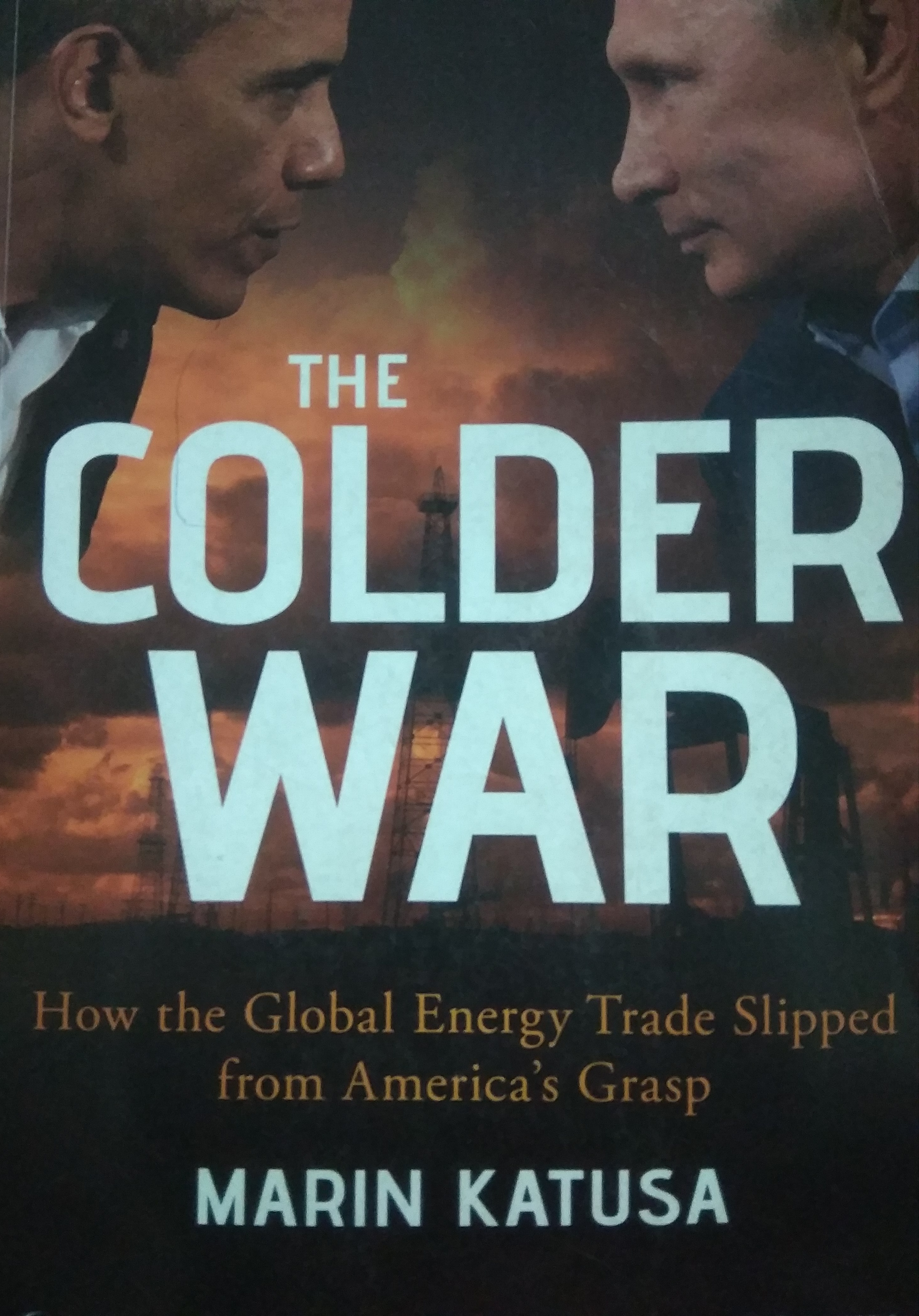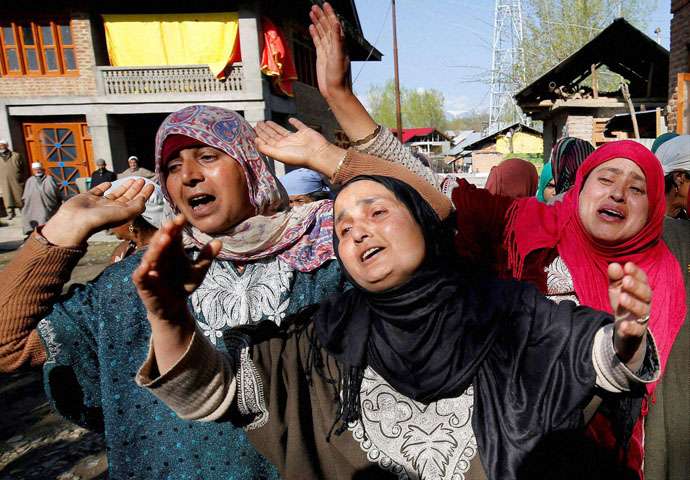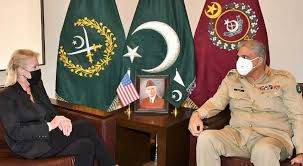
Image courtesy of heartlandanalyst.com
PUTINIZATION of the NEW WORLD ORDER : Part 1 -- Arindam Mukherjee
We have reached a certain phase in the affairs of the world today where it is every nation for himself with absolutely no hang-ups on how they are perceived by others, which is a remarkable shift from just a couple of decades ago where nations and their leaders had a certain amount of obligation – however perfunctory – to the different alliance (which were precious few) between nation/states that they were bound by. These days of signing of infinite number and kinds of agreements between every possible nations – big or small and otherwise, have left the landscape extremely complex, extending the grey areas exponentially, and that has sort of helped opportunists of different shapes to quickly mutate into the next level taking advantage of the consequential confusion. New Delhi, in its avatar of Miss Popular during most of that phase, demonstrated subnormal intelligence in analysing and adapting to this historical shift. We are a country that has factually been too preoccupied with ‘what others think of us’ to be functionally optimal in – among other areas – the international diplomatic arena. But now that has sort of changed a little. I am quite certain we would make a few mistakes; and a few of them could well be big ones – given our economic and physical dimensions – but I am half-hopeful that we would manage to make up for the lost time.
So, India playing a little ping-pong with Iran on the oil and gas deal shouldn’t come across as alarming, as shouldn’t be the fact of India trying to make it work with China or Russia, AND Uncle at the same time. Turkey till about last week was the newfound Iran-ally in the Middle East. And now, no sooner had Scrooge uttered the word that he (meaning Sultan) ‘was mistreated by the Great Orator, so he is right on the S-400 purchase’, shifts have been observed in their behaviour especially when it comes to preserving Uncle’s interest (read Incirlik) about Iran. Then, Bibi called Scrooge and Vlad for a meeting, but flew planes to Syria and bombed a few places soon afterwards. And Vlad is in a team with Iran and Turkey on Syria but is ok with the Uncle clamping a little or more, on Iran. Of course, you can ask why is Iran being made ‘a scapegoat’, and why is Moscow behaving quizzically, and the answer to that, though predominantly geostrategic and geopolitical in nature, would also have a few things concerning Iran’s behaviour: two-timing friends with an intention of one upping them being the main one. Maybe this is Iran’s idea of acting in its own interest. And maybe this isn’t the right time (or shape to be in) to fiddle with nascent partnerships, as Iran would perhaps find out. Similarly, USA announcing BLA as terrorists don’t count along the line for India as the media would want you to believe. It counts for Iran; that Uncle is ready to call on Pakistan, and… what if tomorrow Uncle wants his old places of hangouts – a few of which happen to be in Baluchistan – back? Uncle had them shut down a couple of years ago. What if Uncle decides that he misses them very much? That’s rather close to Iran border. Imran is all smiles by the way; ready to visit Uncle-land. [The only, and actually done-to-death-lesson for New Delhi is this that Uncle’s affairs are costly affairs. But since ingenuity and MSM are antonymous, they are happy to repeat what you already know.]
Like the social media that we love to live in, this too is quickly turning out to be a completely connected, disconnected world where everyone knows everyone and are on their own. And I don’t think anyone has an idea of what constitutes model behaviour. My guess is most of these guys would think short term and try to maximize on the corresponding quick gains – an election win, a limited tactical upper hand and the likes. Only one or two won’t. And I just finished reading an incredible account (The Colder War – Marin Katusha; pic above) about the one man that seems to be towering a mile above the rest. And now that you too are done surfing through a few of the updates that you are used to from this column, here is a little change of taste: an account of what this man has been up to.
The collapse of the USSR that marked the end of the Cold War was epic in more than one sense. The chaos that fell upon world’s largest country was one; the humiliation that a group of nationalist Russians had to endure was a close next. And these principals, along with the entire series of chaos and disorder churned and churned, to produce – almost mythically – a politician and leader of the stature that remains unmatched in global history running back to a fair number of years.
To write in details is not the idea. You already know which book to grab. I am hoping that this would, other than whetting your appetite, give you an idea about the man and his potential.
Immediately after the Soviet Union collapsed (shattered, would be a better expression actually), the few crucial things that marked the coming of their near future were a mad scramble for acquisition of the government enterprises, the rise of the oligarchs and rise of the mafia, massive unemployment and pauperization of the commoner, secessionist movement (Chechnya), an army that remained mentally broken down from their Afghan experience, and… a grossly incompetent and alcoholic Boris Yeltsin, who had little idea about how to steer that big a country through the chaos.
That was the time when a colleague invited a minor political figure from St Petersburg mayor’s office to join Yeltsin’s gang of incompetent administrators. This minor moved in with a bunch of guys – the ones that came to be known as the St Petersburg Boys – and arrived in Moscow. And the very second thing that he did – the first one was gaining Yeltsin’s affection – was taking the Chechen issue head-on. This affair morphed to make way for some really interesting angles in the sequence of events and the subsequent theories that made to the different media. At the end of the terror attacks, the resultant Second Chechen War, the scorched earth tactic, and the complete decimation of the Chechen rebellion – Vladimir Vladimirovich Putin – one of the many Prime Ministers to serve under Yeltsin, but the only one that succeeded him to become the President, stood to dominate the Russian landscape. From a team member, to the head of FSB, to a PM, to an elected President – in less than two years. How’s that for appetizer?
Of course, each of the lines comprising the above paragraph – and I mean EACH AND EVERY LINE (except the one that has the word ‘appetizer’ in it) – have stories behind them. The kind of stories that have planners, plotters, winners and losers. And it would be up to you to read more to gauge the superhuman efficiency of this man, or simply accept the fact that this was the point in Russian chronology when insiders began to discern the fluttering of a new world under the ashes of the old Union.
Putin – with his chosen first mission that also served as an image builder in the minds of hopeless Russians – then trained his sight on the oligarchs. And the entire episode’s representative header can be summed up with two words: Yukos and Khodorkovsky. It is an elaborate story, and depending on who’s telling it, could be frustrating or liberating in its moral. Chechen affair was a booster for the average Russian. Their opinion about Putin found mooring on the idea that this was a decisive leader who walked the talk. The complete dismantling of the fledgling oligarchy (only those that opposed his grand vision for Russia) added ‘assertive nationalism’ to that list. Those who have personally interacted with Russian(s) know that very few people in this world are as proud of their motherland as the average Russian. A patriot as a President was as good as it could get. Only, it was to get better.
Those like me, who believe in Halford Mackinder have come to grudgingly accept the idea that the struggle for global dominance would perhaps continue till the last human being. The Grand Chessboard is real; the players are too. And the one evidence to that is from Colonialism to present day, and through the Great Game and the World Wars and the Cold War and the GWOT and the change of players, we’ve been upgrading/adapting continuously only to keep fairly focussed on that one thing: dominance through control of resources and commerce (a few representative words to explain these better would be: oil and gas, routes and currency control). Nothing else matters. The WWII saw a change of guard; USA as the new power maintained its dominance over the years through what we know as Bretton-Woods system. And when gold no longer remained a part of the system, a rare political checkmate conceptualized by the Kissinger-Nixon duo in the shape of Petrodollar (oil as the new gold) laid out a fresh carpet to prolong United States’ global dominance.
The above paragraph becomes interesting for three reasons. One, like every other game, The Game too has its own rules; no matter how twisted they are. Two, this new entrant Putin, exceled in playing by the rules (perhaps the best in contemporary times as we would soon find out); he was out to prove that. And three, once he settled down amidst the tricky zone that is Moscow Politics, it was time to go international.
Vlad Putin effected, or has been instrumental behind effecting CES, SCO and visions for a major Eurasian Union. And behind this humongous union that in terms of continuous real estate is perhaps bigger than the empire of Dzenghis Khan lies the fact that from Iran to Vladivostok and China, or from Belarus to Pakistan and India, this is not just a contiguous stretch of land, but is also lion’s share of the entire global energy resources, land routes, and shoreline. Yes, there were the NGO initiated revolutions, and there was some work done on the NATO mandate of expanding the limits of their eastern influence – typically one step forward two steps sideways and dancing to a lot of grey music and fanfare; and that was met by dismembering of Georgia, reconciliation with an old foe China, checkmate over Crimea, and a semi-fracture of Ukraine along ethnic lines. Small, precise, and decisive moves; like six-inches-punches of Bruce Lee. Near zero showmanship, and effective in impact. And one wouldn’t find him breaking many international laws here. [... to be concluded.]



Comments